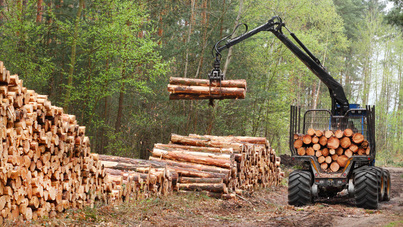Author
The turn of the New Year saw the coming into force of another tranche of the Environment Act 2021 (“EA 2021”) by the passing of the Environment Act 2021 (Commencement No.5 and Transitional Provisions) Regulations 2022/1266. The provisions place new obligations on public authorities in respect of conserving biodiversity and introduce new powers to crack down on illegal tree felling.
Public authorities and biodiversity
Sections 102 and 103 EA 2021 amend section 40 and insert a new paragraph 40A to the Natural Environment and Rural Communities Act 2006.
The key changes are:-
- Public authorities have a duty to have regard to conservation of biodiversity when delivering their functions – they have to assess how they are going to conserve and enhance biodiversity and then action it.
- Local authorities and local planning authorities must produce biodiversity reports setting out:
- what action they have taken over the period of the report;
- their plans for the five years following the report; and
- quantitative data and other appropriate information to include in the report.
- The first report must not cover a period of more than three years. Subsequent reports must cover no more than a five year period and run consecutively.
- The report must be published within 12 weeks of the last day of the report.
- The Secretary of State has the power to designate other public authorities that are required to report and can specify the quantitative data to be included.
Tree Felling
Illegal tree felling has caused irreparable harm to woodland and wildlife habitats; it goes completely against the grain in terms of this country’s aim to achieve net zero, where our woodland is a key asset for efficient and effective carbon capture.
Sections 114 and Schedule 16 EA 2021 amend Part II of the Forestry Act 1967, providing tougher sanctions with longer-lasting effect where illegal tree felling has taken place.
The key changes are:
- Forestry Commission Enforcement Notices and Court ordered Restocking Notices (requiring replanting of illegally felled trees) for failing to comply with an Enforcement Notice can be registered as a Local Land Charge.
- An unlimited fine can be imposed on those who fell trees without a felling licence where one was required. Cf. with the previous sanctions where the penalty limit was set at £2,500 or twice the value of the felled trees.
- Failure to comply with a Restocking Notice and/or and Enforcement Notice is now punishable by imprisonment or an unlimited fine.
The robust sanctions mean that long gone are the days where landowners/occupiers could fell trees without a licence, for a commercial benefit, where they were content to take the meagre fine if caught.
Now, not only is there the risk of jail time and significant financial consequences, but there is the question mark over whether Enforcement/Restocking Notices are going to impact on the value of land if registered as a Local Land Charge. These will be discoverable by the public and will inevitably be flagged by a purchaser’s solicitor when they carry out pre-contract searches. Are prospective buyers going to want to purchase property subject to an Enforcement Notice that is going to be binding on them?
Landowners will be subject to greater reporting requirements. The Forestry Commission now has the authority to compel landowners to provide information regarding those who may have an interest in the land which would not always be discoverable by review of the legal title i.e. tenants of leases of less than seven years.
Conclusion
What is plain to see is that the introduction of the latest regulations places a much tighter rein on both public authorities and the wider public in order to protect the environment moving forward and to meet the UK’s net zero ambitions.
Print article

